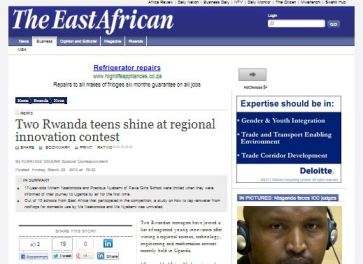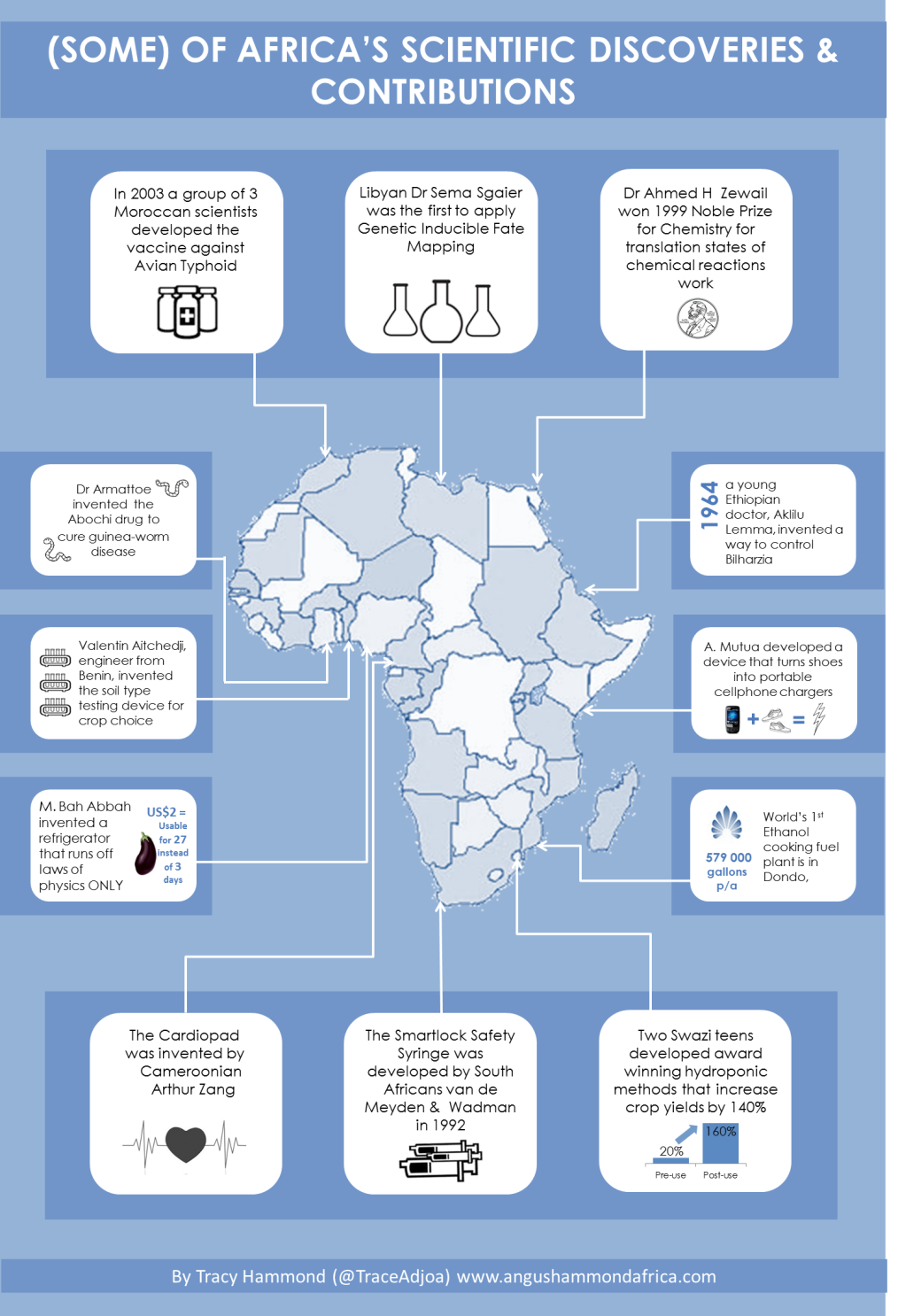1) Kelvin Doe
Kelvin Doe is my hero and the most inspiring person on the planet in my book. He’s only 15 but recently became the youngest person EVER to be invited to MIT’s ‘Visiting Practitioner Programme’. His claim to fame? His incredible ability to turn trash into batteries, generators and even radio transmitters. Completely self-taught, he has used these skills to create a community empowerment radio station, which he runs as “DJ Focus”. But despite his genius he is incredibly down to earth, humble and the sort of person we should all aspire to be. Be warned, this video is the most motivating and heart-warming I’ve ever seen, tissues will be required!
2) Richard Turere
A 13 year old Maasai herdsman from Kenya was losing his family’s livestock to lions from the nearby Nairobi National Park. Rather than trying to kill the lions, like most people in his community felt forced to do, he used incredible resourcefulness to invent a solar powered lighting system that now protects the cattle from his own and several other villages. By providing a different way of protecting the cattle, he has also done a lot to help the lions. By safeguarding human lives, protecting livelihoods and building harmony with the natural environment, Richard shows us how little it takes to come up with completely new solutions when we truly pay attention to local circumstances.
3) Nadege Iradukunda
Nadege is an 18 year old Rwandan who is dramatically reducing the cost of running schools by setting up bio-digester plants. A bio-digester plant uses natural biological processes to converts food waste into energy! The plants help schools in Rwanda not only to reduce their environmental impact but also to save on heating and lighting costs by as much as 40%. This in turn makes education much more affordable and accessible to more Rwandan children. Since the inception of the project she has overseen the deployment of 15 bio-digester plants, serving more than 15000 students.
4) Ludwick Marishane
This 17 year old South African is no stranger to invention, and when in Grade 9 (12 years old) he even invented his own bio-fuel! The invention featured below is called Dry-Bath and is a way to properly cleanse your body without using any water. Ludwick says he specifically invented this for the millions of people across the world who don’t have enough access to clean water, and so help with the prevention of diseases such as Trachoma. Beyond this though, he sees this particular invention as a way to save water, protecting and preserving this scarce resource.
5) Laetitia Mukungu
Laetitia (18) founded and steered to success the Women’s Rabbit Association of Kenya. After a volunteer teaching stint she realised that the biggest impediment to quality education was a lack of funds at home, which impacted on the schools’ resources and even affected their ability to provide uniforms and stationery. She decided she needed to start an income generating project and decided on rabbit breeding! Watch this to find out why she chose rabbits, as well as how 15 families have been transformed by this one inspiring individual.
6) Miriam Nsekonziza and Precious Nyabami
Having only very recently been announced as the winners of a regional science, technology, engineering and mathematics competition (March 2013) little information is currently available on these two 17 year old’s achievements. What is known is that their study can be considered, in the inventors own words, ‘as a major breakthrough in the wake of concerted efforts by the government to ensure access to clean water for all households in the country.’ Their studied covered methods of tapping of rainwater from rooftops.






